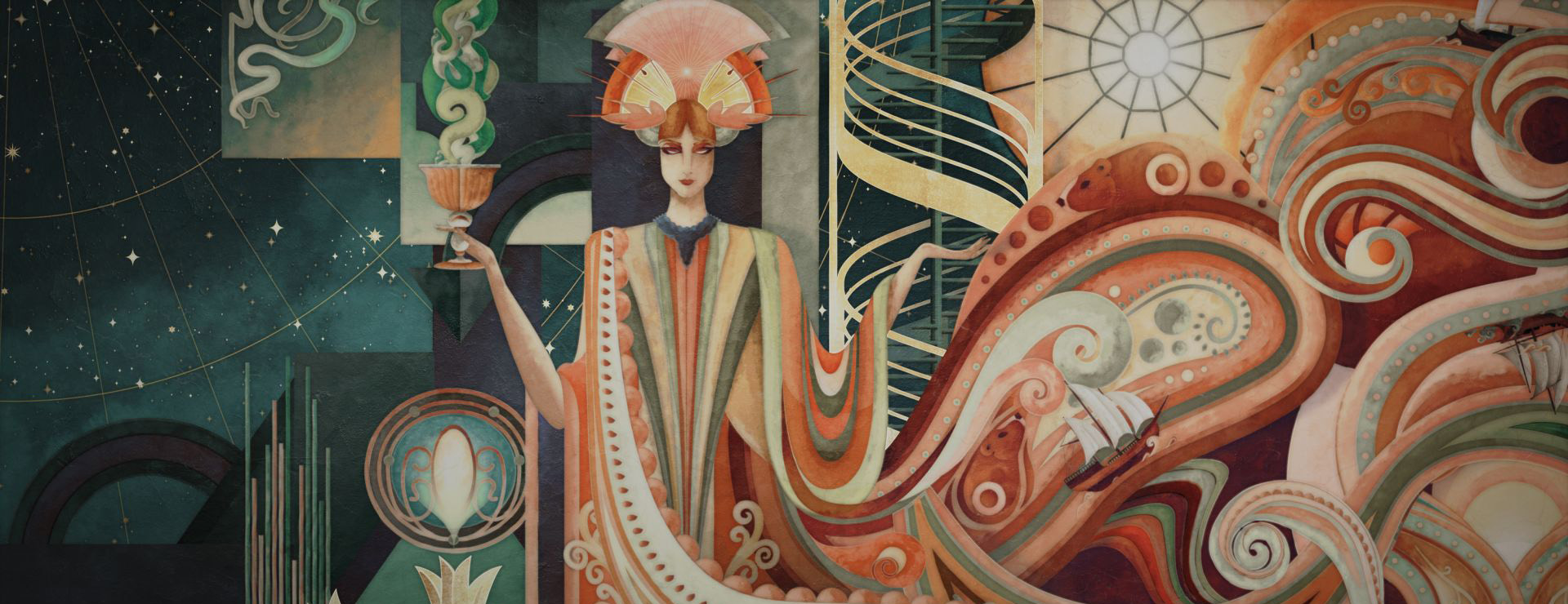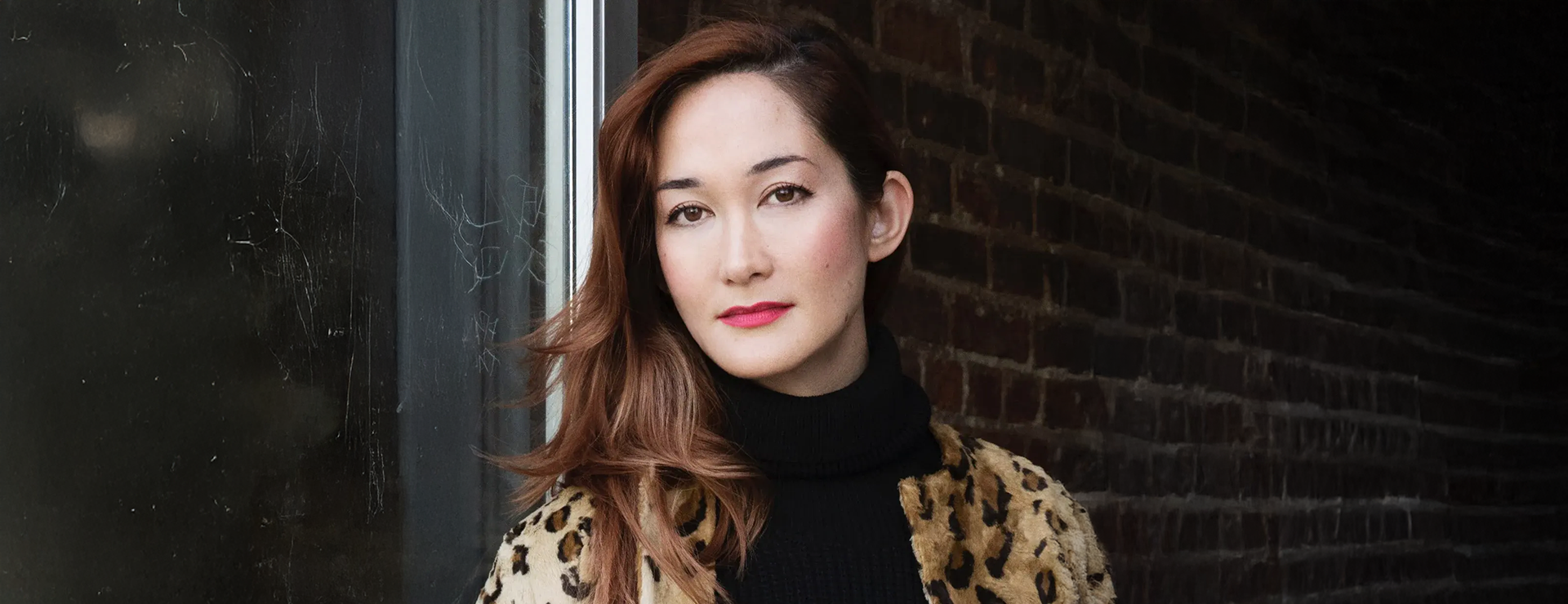From marketer to executive producer to network president to globe-trotting public speaker and podcaster, Evan Shapiro has morphed into an expert surfer of the cultural wave. He's become known as the media universe cartographer -- check out one of his in-depth maps in the story below -- and is charting a path as an expert on the creator economy, in-demand public speaker and up-and-coming podcaster.
In this week’s exclusive Q&A, Shapiro discusses his personal journey as well as how he sees the burgeoning creator economy and his own role within it.
Spotlight: You got your start in marketing but it’s been a long time since marketing was your primary focus. Can you briefly give us a history of how you got from there to here? And can you talk about how you transitioned from being in marketing to running businesses?
Evan Shapiro: The last marketing job I had was head of marketing at IFC, and then I became head of IFC, and from that point on, I was mostly running businesses.
I initially moved to the city to create, write and direct, and I worked in theater, in marketing. At night, I would write and direct. During the day, I worked in marketing in theater, and I kept doing that until I became notable enough in marketing theater that I was able to start my own agency and take on some of the biggest projects in New York theater. But I could no longer write and direct, I had to give that up. That was a very difficult moment for me. I decided to take everything I got from, quote, unquote, being creative, writing and directing, and dedicate that to my business and marketing. I rode that to the point where I got to make stuff again.
I sold my agency at one point and went to work in TV as head of marketing and was promised the opportunity to audition for the head of the channel. Within a year, I remember saying to myself, you did it. You got so good at this one thing, they gave you a more general job, and now you're the head of content at IFC. While I was there, we produced Greg the Bunny with Sean Baker, who just won the Oscar for Anora.
Spotlight: So you got no training on how to run a media business, you were just sort of thrown into it and you did it?
Shapiro: I'm a college dropout, but I had run my own business in the agency, which was pretty successful. I think during my first job in television, which was for Henry Schleiff, working at Court TV as head of marketing there, and then in moving on to IFC, in both cases, I proved that I had some business acumen. I'm a very quick study. I’m an auto-didact. I also knew enough to become very friendly with the lawyers and the accountants and I learned how to work the money and get the deals done.
It was the ride of a lifetime. But working inside corporate media and even when I got to executive produce shows and was pretty hands-on, it wasn’t as satisfying as when I was finally able to dedicate 100% of my time to some level of creation, even if that's a project I'm working on for a client. Generally speaking, the business we operate today is much smaller than one I've run in a very long time, and secondarily, it is entirely driven around my creativity, which is incredibly satisfying.
Spotlight: How would you describe the business that you're running today?
Shapiro: It's a creator economy business, so it's built on a level of writing and talking and insights. It’s a combination of analysis, but also creativity.
I think part of the reason why my stuff works is the depth of the analysis tied to a conversational tone that sometimes is funny and is certainly provocative. It's meant to be provocative and talk the way people talk, and be brutally honest. That's all been extended to a newsletter (Media War & Peace on Substack). There is a constant drum beat on LinkedIn, which is the social media I use as a creator, that's my retail front door. And now we have a podcast, called The Media Odyssey, which I do with my co-host Marian Ranchet.
We aren’t playing the scale game though. Am I trying to be the most-read newsletter or the most-listened-to podcast? No, but we have an audience. We have a community.
The creator economy is built on finding the economy for the community you can build. I have a wonderful relationship with the community – people who follow me and listen to the podcast and read the newsletter, or even just those who passively read me and comment on LinkedIn. It's a real community. There's a sense of belonging there. I know this because when I show up at conferences, I am surrounded by it. I feel it.
So the business is really based on what we create. We do consulting. I get paid to speak publicly, which is really amazing. But if you look at the newsletter, the podcast, and then the live performances, which is what I call it, it's much closer to stand-up than to television.
Spotlight: Why would you say that what you're doing on LinkedIn works so well? Why did you decide that would be your go-to social platform?
Shapiro: I'm very data-driven. Some would say that earlier in my life, I shot from the hip far too much. To counteract that criticism, I over self-corrected. I also love being right. Nothing makes me happier than being right. And so I became addicted to it. And nothing makes you righter than the data.
What I love, and this is the part that I think creates ongoing addiction, is the expression of data as a narrative. When I was the head of networks, I had to sell advertising telling a very specific story using actual, truthful data that you can't question. That became a wonderful exercise for me. Each year, you had to tell a new story, and I fell in love with doing that, and I've done that for clients since then. That's where the infographics came from. I've always done infographics. It's just that the media universe map was the biggest, boldest, most, f–k you version of what I could make out there, because everyone tells you not to put too many data points on one slide.

That map is the personification of my business, of me as an artist, and of the expression of our enterprise.
Spotlight: Why do you think you went in this direction with this data-driven approach, versus back to your first love, which is creative and producing and still storytelling, but perhaps from a more fictional point of view?
Shapiro: I just like storytelling. I don't have a genre. I don't care about genre. I just like making stuff. I hate talking about making shit. I hate it. I have spent a lot less time in television than a lot of other executives out there. I'm a recovering executive.
For example, I love Portlandia. That show is called Portlandia because I gave Fred Armisen the idea to make Portland the main character. That’s how creatively involved I was in that show. But I wasn't on set. I wasn't making it. I wasn't writing it. I'm not in it. I wasn't in the edit. I was very, very involved, but I wasn't making it.
Now, I wake up every day and I write, and that's what I grew up wanting to do, and that's the major difference between the two. And that’s what I think is crucially important here, from a satisfaction standpoint, what I write creates opportunity for me and mine. And that is, I think, the definition of an artist. I've always believed I could make stuff as good as anyone else. I don't care that it's not fiction. I just love that people f–king dig it. That makes me really, really happy.
I've done shows with Dan Harmon and Fred Armisen and Paul Reiser, really cool people. And, I think they would all say I was an artist's producer, and that's because I am a frustrated artist. Now I very much consider myself an artist and people call me the media cartographer. That's a very weird title for people to use without prompting. And I think that's a recognition that I have made that transition, which is one of many pivots I've made in my career.
Spotlight: How do you think traditional media businesses – like Warner Bros. Discovery or NBCUniversal or Disney – are going to have to change so they can live side by side with what the creator economy is becoming?
Shapiro: First, you have to realize that these are still profitable businesses. I think people write that off but the linear television networks are still, in many cases, the most profitable part of a lot of media businesses. That's shrinking, obviously, very quickly. The key is, what are you doing with your profits that you know are dwindling today to protect yourself for tomorrow? And the key element here is whether or not you're a publisher or a producer or a platform or some combination of all of those, what you have to understand is Hollywood, YouTube, all of it now is the creator economy. It’s no longer an either/or. It's a yes and yes. Yes, you're going to have your own streaming app. Yes, you're going to have your own broadcast and, if you want to be relevant to the three or four generations younger than 40, you must also understand that you have to coexist and be a creator in the truest sense of the term. And you have to understand that it's all the creator economy, because they turn on the television and it's YouTube first, then Disney Plus, then Netflix, then back to YouTube. It all coexists, one right next to each other.
Spotlight: When you say you must understand and be a creator, how do you define a creator, and particularly from the point of view of, if I'm a huge company like Disney, but you want to come at it as a creator, what does that look like?
Shapiro: I think you have to understand that a decent amount of your audience is going to live on the platforms. What is the relationship between big tech and big media right now? If you talk to big media about distributing your content on YouTube, they act as if you're a spaceship that landed from outer space. And then you ask them about the relationship with Comcast, or, let's flip this around, your relationship with Apple and the App Store, or Roku, which has almost 50% of the market in the United States. You work with all of them. And yes, it's a different kind of shared economics, but you're sharing economics. The consumer is generating this much income, and you're splitting it. What's more important is that ride, the YouTube ride, is going to rise, and you can rise with it. It's new revenue, and in many cases, it will be new audience, especially for publishers like Channel Four. We just dropped a case study about this on our podcast.
I worked with Channel Four and CBC starting a year or more ago to just tackle the topic and test and learn. And in both cases, they tested, they learned, they adapted and they smashed it, they absolutely crushed it, and now they are acting like creators.
Spotlight: That leads well into my next question, which is, that I feel like audience is now the game – how do you target them, how do you reach them, how do you create scale? Do you think everyone is obligated to monetize their content across platforms to do that?
Shapiro: This is why it's really crucial to understand the basic nature of the creator economy. It's not even so much that you have to be on YouTube or Instagram or anything like that. It's the fact that the rules of this new media economy are completely different from what came before. It was all push then. Now it's all pull. It's no longer you throwing it at the consumer and them taking whatever comes. The consumer chooses everything themselves, right? Second by second, minute by minute. So it's a completely different model, and it's going to be as diverse and nuanced and complicated per piece as it is per consumer.
Spotlight: Last thing, when you look at media writ large, as the media cartographer, what are you most optimistic about?
Shapiro: I really do love the art, the voice, the opportunity, the democratization that comes out of the creator economy. I wouldn't have a career right now if not for it. I think more people will start small businesses through that avenue over the next 10 years than have started small businesses in the last 50 years combined. And will there be too many of them, like there are too many podcasts, but I do think it's going to create a new economy that I think a lot of people in our cohort don't appreciate and are fearful of, so they may miss it.
If you have a fear of finding out, if the main reason you're not testing something out is the fear of your own irrelevance, then you're going to have a self fulfilling prophecy. You're watching it happen across our industry, because there's going to be another 10 to 20,000 layoffs again this year. These mergers and acquisitions are not going to necessarily produce more jobs.
I can't encourage people enough to just dip your toe in and, frankly, wake up stupid every day, wake up looking for something new to learn every single day, and then the anxiety of your own irrelevance will at least be covered by activity.
Attendees of GEMA’s first annual Europe Entertainment Marketing + Creative Summit will get to meet, mix and mingle with Shapiro and his podcasting partner Marion Ranchet at the event in San Sebastian, Spain, 21-22 May.













